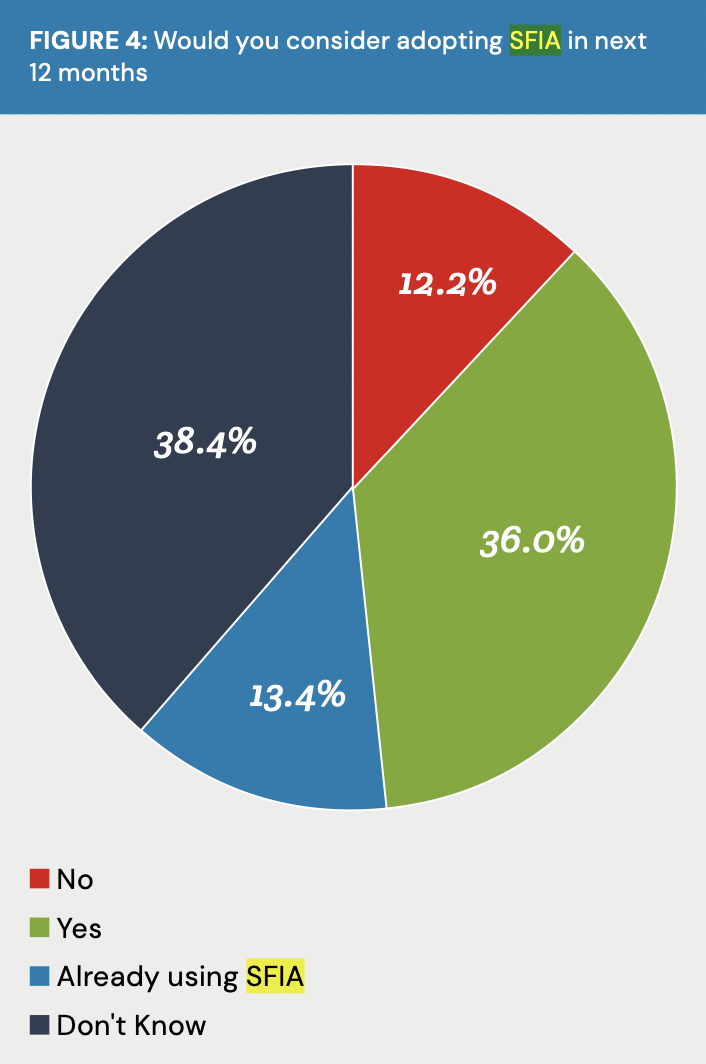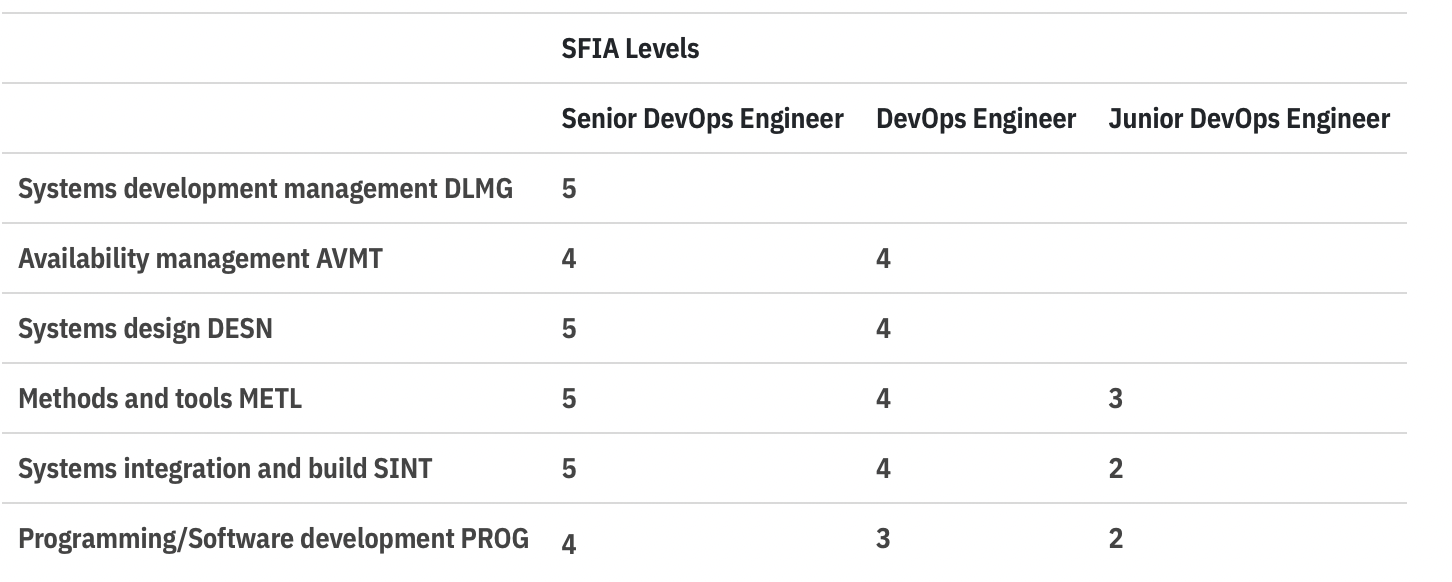SFIA - what is it and why do we care?
Imagine an industry where position descriptions for a given role are consistent - so whether you are a Business Analyst or a Data Analyst or a Project Manager or in DevOps when you move roles the position description is consistent with the ones you have had before.
Then imagine an industry where you can enter a role at entry level, at a junior level, intermediate or senior and based on your position description, understand the skills and capabilities you need to do your job. You and your employer can measure your progression as you grow and develop. As you move businesses that progress can continue to be assessed in the same consistent manner.
To achieve all of this we need to be using a common language and a common framework - this is what SFIA, the Skills Framework for the Information Age achieves for our industry, digital technology.
SFIA (Skills Framework for the Information Age), is a globally recognised approach designed to identify, develop, and nurture the essential skills your team needs in today's digital world.
“Sounds pretty heavy right? I prefer to call it a framework that helps provide direction for you or your teams upskilling journey. It'll help identify skill gaps and next steps to uplift your capabilities.” Anthony Dowling, President IT Professionals
Why SFIA and how was it selected for Aotearoa New Zealand
Back in 2016 the then Digital Skills Forum (which I chaired at the time) commissioned research into Skills Frameworks, 7 different frameworks were considered against a set of criteria:
- SFIA (Skills Framework for the Information Age)
- DATSM (Digital and Technology Skills Matrix)
- European e-Competence Framework
- Information Technology Competency Model
- Common Career Skill Framework
- National Cybersecurity Workforce Framework
- IISP (Institute of Information Security Professionals) Skills Framework
These criteria can be can be paraphrased as:
- Broadly applicable: Comprehensive coverage and range of professional ICT/ digital technology skills.
- Skills covered will ideally include all those currently or forecast to be difficult to access, including skills that are - Technical , Functional (eg project management; supervisory), Non-technical/ soft skills such as problem solving, trouble-shooting, critical thinking, logic, analysis, original thinking, effective teamwork, collaboration, relationship management, communication skills etc, In some fashion, behaviours, aptitudes and attitudes (eg entrepreneurial bent; work-readiness) and Relevant to emerging technologies and uses of technology (including cyber security).
- Differentiates levels or depth of ability in given skills to a degree of specificity such that - We can recognise it when we see it, distinguishes between roles noting that different ICT roles are different and It’s clear how to improve with formal or informal training.
- Maintains it currency. The framework is refreshed and updated by its authors from time to time as industry needs and technologies change.
- Skills are distinct. Differentiates types of skills sufficiently such that requirements for different and distinct ICT roles may be distinguished by types of skills as specified under the framework (as well as, potentially, by the levels of skill required).
- Is Useable. Clear and understandable by non-specialists, describes skills and levels of skills in a manner that is able to be assessed using test instruments that are practical to administer,
- Is supported by tools that assist use of the framework (eg guides, manuals, assessment tools etc).
- Knowledgeable experts are available
- Can be matched to New Zealand recognised qualifications.
- Credible and supported by relevant industry / sector.
- Credible with Education providers.
- International recognised.
- Extensible and readily able to be augmented with additional skills or levels if required.
The approach to selecting which framework involved interviewing businesses, education providers and government agencies along with assessing the frameworks against the criteria above. A shortlist of two were presented for further assessment - SFIA and the European e-Comptence Framework.
SFIA was selected over the other frontrunner because, on balance, it was already in use with some government organisations, it included a greater range of soft skills and was about to release Cyber Security skills and had a very clear roadmap for future development.
“Systematically adopting the SFIA framework will also help instil consistency for describing and quantifying digital skills.” Digital Skills for Tomorrow, Today 2023 report
Who can use SFIA
In 2022 the NZ government purchased a country license for SFIA so everyone here in Aotearoa NZ can use it. DIA is the lead agency for this and there is virtually no information available from them but here is a wee blurb on MBIE’s site about how this fits into the Digital Technology Industry Transformation Plan programme of work (which I co-Chair today).
 Looking at the latest Digital Skills for Tomorrow, Today report one of the recommendations is for wider SFIA adoption. The report (on page 42) contains insights into how widely this framework is in use today and goes on to explain the benefits. Looking at their lead graphic of the 38.4% who don’t know whether they will adopt SFIA gave a lack of understanding or awareness as their primary reason, not knowing how to navigate the framework or how to get started.
Looking at the latest Digital Skills for Tomorrow, Today report one of the recommendations is for wider SFIA adoption. The report (on page 42) contains insights into how widely this framework is in use today and goes on to explain the benefits. Looking at their lead graphic of the 38.4% who don’t know whether they will adopt SFIA gave a lack of understanding or awareness as their primary reason, not knowing how to navigate the framework or how to get started.
The report recommends "Use an Industry Standard - rapidly deploy
the SFIA framework to enable alignment."
Getting Started
The SFIA Foundation has a host of resources on their website including a SFIA Overview for new users.
The Australian Public Service have exposed a number of their resources online via their APS Digital Career Pathfinder service.
Here you can find their Skill Profile maps for different roles.
The worked example that is easiest to access is for DEVOPS Engineers.
The APS map the skills and SFIA level required to move from Junior DevOps Engineer, to DevOps Engineer to Senior DevOps Engineer.
Over on the SFIA website you can find a collection of resources on DevOps skills, including a job description helper, focus areas and skills mapping. 
Now I am the first to admit the SFIA website isn’t the easiest to navigate so we will be looking to bring a range of simpler tools for NZ users to explore very soon.
Finally
Having a common framework, consistent position descriptions and mechanisms for measuring progression is a great first step in maturing our industry.
This blog post was written 12 years ago now when SFIA was first discovered by IT Professionals, it’s been a slow journey but we are making some progress. Ngā mihi nui Vic
